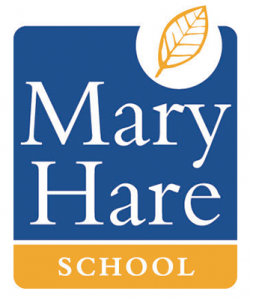Connevans British-sign.co.uk MED-EL
Sign up now!
The first ever BATOD National Webinar event is taking place on 10 November 2020 as a ‘thank you’ to BATOD members for their patience and understanding following the forced postponement of the 2020 BATOD National Conference. The postponed Conference is currently planned to run in March 2021 at the same venue, Frank Barnes School for the Deaf, London.
The sustainability of BATOD requires events to run as cost-neutral activities ie at a charge to members. However, this event will be an exception and delivered free to members as they engage with the return to work in the first term of the ‘new normal’ school year. BATOD will be encouraging Heads of Service, Schools and Provisions to use this webinar event as a staff team CPD opportunity.
The registration link – https://www.eventbrite.co.uk/e/batod-national-webinar-2020-tickets-114643864886
Click here for the user guide for the webinar
The webinar will host two keynote speakers: Dr Helen Willis and international speaker, Emmie Wienhoven.
Dr Helen Willis – The future for the cyborg generations: Helping CI users live in harmony with their technology
Presentation abstract
Cochlear implantation is essentially cyborg technology, because it requires close co-operation between the device and the biological functioning of the recipient. The future success of this partnership depends on generating a greater understanding of the impact of the cochlear implant on cognitive functioning and mental and physical wellbeing. Current evidence from neuroscience research suggests that demand for cognitive resources is increased in CI users, compared to their hearing peers. This increases the risk of cognitive overload and the initiation of a chronic stress response, causing changes in the functioning of the hypothalamus, pituitary and adrenal glands (HPA disruption), which can lead to physical and mental health problems. This pattern of HPA disruption can be averted if greater attention is paid to means of managing the available cognitive capacity of CI users, to reduce the likelihood of cognitive overload. The “Go for Gold” strategy identifies three interventions: (1) Golden Silences; (2) Golden Opportunities and (3) Gold Star Support, which are designed to prevent the potential damage of a chronic stress response and make the best use of available cognitive resources, in order to optimise the potential for learning and achievement. Future interventions, however, need to attempt to address the mismatch between primitive physiological protective mechanisms (i.e. caveman physiology) and the demands of cyborg technology. Subconscious mechanisms are a possible route to promoting healthy co-existence. Hypnotherapy and psychotherapy, therefore, may have a role in the future management of cyborg generations to enable them to live in harmony with their technology.
Emmie Wienhoven – Literacy for Deaf and hard of hearing children in Uganda and Tanzania
Presentation abstract
Literacy for Deaf and hard of hearing children in Uganda and Tanzania
Emmie Wienhoven, Project Manager International Knowlede Exchange, Royal Dutch Kentalis.
Together with several partners in Uganda and Tanzania, Royal Dutch Kentalis has been developing resources for teachers to teach literacy to Deaf and hard of hearing (DHH) learners. These resources are co-developed with teachers and other professionals in Uganda and Tanzania and consist of training for reading coaches, training for teachers, a teacher’s guide/toolkit, and coaching.
The resources are build on the a language first principle, since teachers face children in their classroom who have severe language delays due to a lack of accessible language at home. This means that most and rapid language acquisition and learning often doesn’t start until children enter school. When sign language skills have been build teachers can build upon these skills to teach reading effectively, applying strategies that are not (only) sound-based.
Teachers also learn tools to create a positive learning environment, and skills in making visual materials.
The training and resources are highly valued by teachers and other professionals because they offer theoretical understanding and practical tools that can be applied in the classroom, taking into account the divers group of children teacher’s teach daily, and an often limited availability of resources to purchase teaching aids.
Biographies
Dr Helen Willis was deafened by meningitis as a toddler and was the 51st child to receive a cochlear implant at the Auditory Implant Programme in Nottingham in 1994. Helen was educated in mainstream (supported by a hearing-impaired resource base) throughout her primary years. She then attended Mary Hare School for the Deaf.
Helen studied at Oxford University (St John’s College) and graduated in 2014 with a First Class Honours degree in Physiology and Psychology and an MSc in Neuroscience. Helen undertook her PhD at University College London (UCL), researching into listening effort in CI users. Her more recent qualifications in hypnotherapy and psychotherapy have enabled her to begin to develop her own business as a Stress Management Consultant, providing education, advice and treatment for relieving chronic stress. Her consultancy ‘Soothing Stress Strategies’ is due to be launched in early 2021.
Emmie Wienhoven MSc has a background in Sign Linguistics and International Development Studies, focussing on the linguistic and educational rights of Deaf children. As a Project Manager for the international projects of Royal Dutch Kentalis they manage projects in Zambia, Uganda, Kenya and Tanzania. All their projects are aimed at achieving equitable quality education for Deaf learners and mainly focus on literacy.




